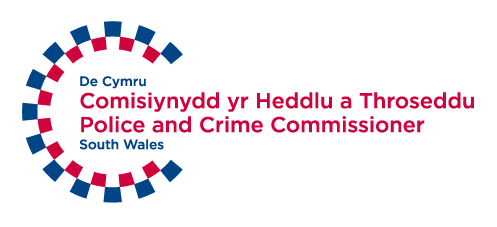|
||||
|
||||
|
|
||||
Personal fraud and how to prevent itBILINGUAL MESSAGE / NEGES DWYIEITHOG
Hello
Fraud is when a person lies to you, or ‘scams’ you, to gain an advantage, such as taking your money or learning private information about you. This could be via email, text, phone or in person, either on the street or on your doorstep. Some adults may be especially vulnerable to fraud and financial abuse. If you’re concerned about someone you know, contact your local social services and ask for Adult Social Care. With a little knowledge you can protect yourself from fraudsters too: For more information and help and to report fraud, go to Action Fraud, the UK’s national fraud and cybercrime reporting centre. Ten golden rules to prevent fraud Remember these ten golden rules to help you prevent fraud and beat the scammers. Get help or report a scamIf you think you’ve uncovered a scam, been targeted by a scam or fallen victim to fraudsters, contact Action Fraud on 0300 123 2040 or at Action Fraud. Call us on 101 if you know the suspect or they’re still in the area. Reporting crime, including fraud, is important. If you don’t tell the authorities, how do they know it’s happened and how can they do anything about it? Remember that if you’re a victim of a scam or an attempted scam, however minor, there may be hundreds or thousands of others in a similar position. Your information may form part of one big jigsaw and be vital to completing the picture. Do you need to speak to the police but don’t require an emergency response? You can make an online report via our website https://www.south-wales.police.uk, send us a private message via Live Chat, or call 101. In an emergency always dial 999. Twyll personol a sut i’w atalShwmae
Twyll yw pan fydd person yn dweud celwydd wrthoch chi, neu’n eich ‘sgamio’ chi, i achub mantais, fel cymryd eich arian neu ddysgu gwybodaeth breifat amdanoch chi. Gallai hyn fod drwy e-bost, neges destun, ffôn neu’n bersonol, naill ai ar y stryd neu ar stepen eich drws. Efallai y gall rhai oedolion fod yn arbennig o agored i dwyll a cham-drin ariannol. Os ydych chi'n poeni am rywun rydych yn ei adnabod, cysylltwch â’ch gwasanaethau cymdeithasol lleol a gofynnwch am Ofal Cymdeithasol i Oedolion. Gydag ychydig wybodaeth, gallwch ddiogelu eich hun rhag y twyllwyr hefyd: Am fwy o wybodaeth a help ac i riportio twyll, ewch i Action Fraud, canolfan riportio genedlaethol y DU ar gyfer twyll a seiberdroseddu. Y deg prif reol i atal twyll Cofiwch y deg prif reol i’ch helpu i atal twyll a maeddu’r sgamwyr. Cael help neu riportio sgamOs ydych chi'n meddwl eich bod wedi datgelu sgam, wedi cael eich targedu gan sgam neu wedi dioddef twyllwyr, cysylltwch ag Action Fraud ar 0300 123 2040 neu yn Action Fraud. Ffoniwch ni ar 101 os ydych chi'n adnabod y person dan amheuaeth neu os ydyn nhw yn yr ardal o hyd. Ffoniwch ni ar 101 os ydych chi'n adnabod y sawl sydd dan amheuaeth neu os ydyn nhw dal yn yr ardal. Mae riportio trosedd, gan gynnwys twyll, yn bwysig. Os na fyddwch yn dweud wrth yr awdurdodau, sut maen nhw'n gwybod fod y peth wedi digwydd a sut allan nhw wneud unrhyw beth amdano? Cofiwch, os ydych chi wedi dioddef sgam neu ymgais i sgamio, waeth pa mor fach, efallai y bydd cannoedd neu filoedd o bobl eraill mewn sefyllfa debyg. Efallai y bydd eich gwybodaeth yn rhan o un jig-so mawr ac yn hollbwysig i gwblhau'r darlun. Oes angen i chi siarad â'r heddlu ond nid oes angen ymateb brys arnoch? Gallwch roi gwybod am fater ar-lein drwy ein gwefan https://www.south-wales.police.uk, anfonwch neges breifat atom drwy Sgwrs Fyw, neu ffoniwch 101. Mewn argyfwng, ffoniwch 999 bob amser. | ||||
Reply to this message | ||||
|
||||
|
|
|








